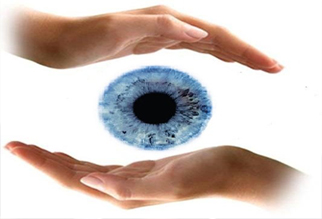The age-old combination of a healthy life style and early detection of problems is the best prevention against any loss of vision. Early detection through regular eye examinations by your eye doctor will help prevent natural age-related vision problems from becoming major visual handicaps. Other tips which can make life easier, safer and more enjoyable as we age include: avoiding tinted eyeglasses and tinted windshields when driving at night; keeping eyeglasses, car mirrors and windows clean at all times; turning up the lights at home (especially for close tasks); and carrying a flashlight when out at night to increase lighting when walking.
5 Tips to Keep Your Eyes Healthy
Get your eyes checked regularly
Getting regular comprehensive eye exams is critical to keeping your eyes healthy and protecting your vision.
Wear sunglasses
Protect your eyes from the sun’s harmful ultraviolet rays by wearing good quality radiation blocking sunglasses.
Protect your eyes
Wear protective eyewear like goggles or safety glasses when participating in high-risk sports or work activities.
Take a vision break
Looking at a computer screen for long periods of time can cause serious eyestrain. Give your eyes a break by looking away from the computer every 20 minutes or so.
Get enough sleep
Being overtired can increase eyestrain. Refresh your eyes and your body by getting at least 7 or 8 hours of sleep each night.
Paediatric Eye Care
Vision problems are treated more successfully during the growth and development of a child’s visual system. By the time children reach school age, their visual system has completed its development, so a delayed eye exam can spell trouble.
Children may not know what to expect during a routine professional eye exam. Calm your child’s fears by setting an example: Get your eyes examined first! Then you can sit with him or her while their eyes are examined.
Children may not know what to expect during a routine professional eye exam. Calm your child’s fears by setting an example: Get your eyes examined first! Then you can sit with him or her while their eyes are examined.
